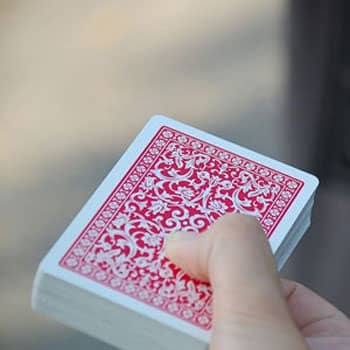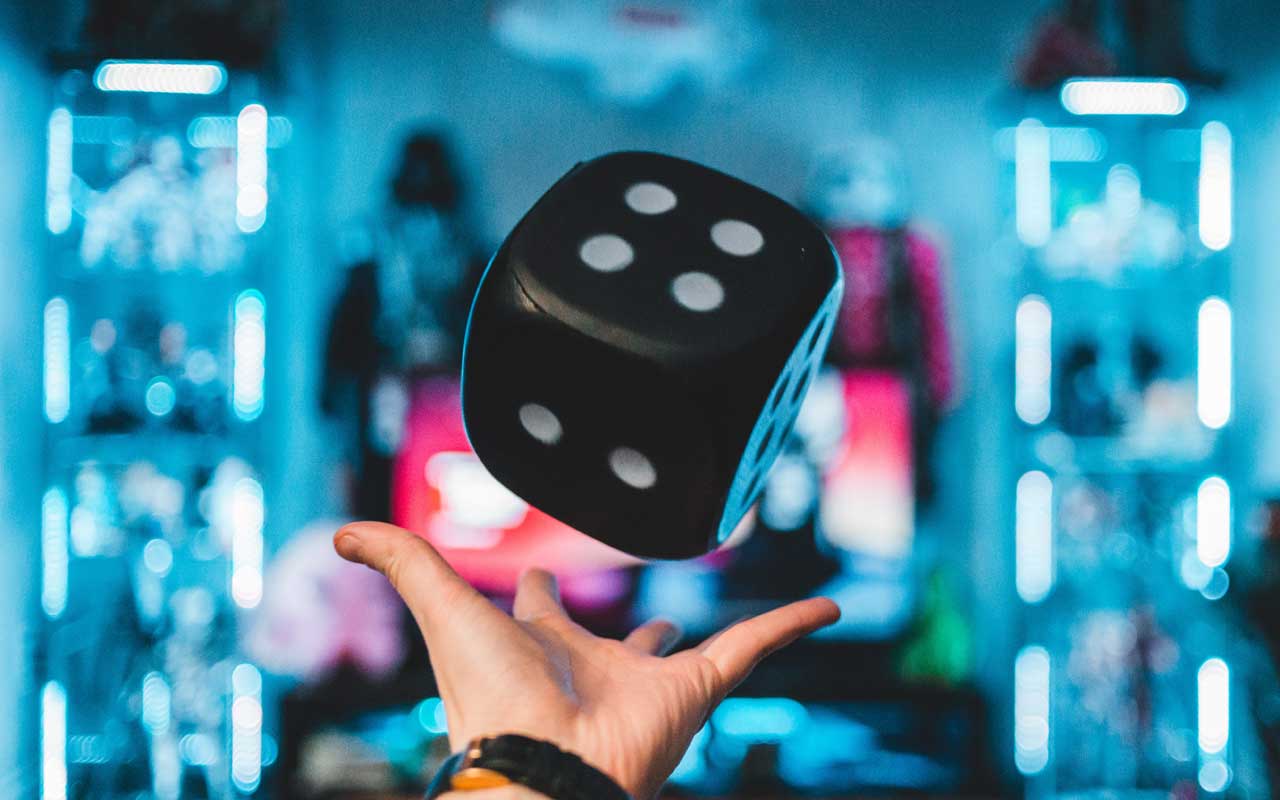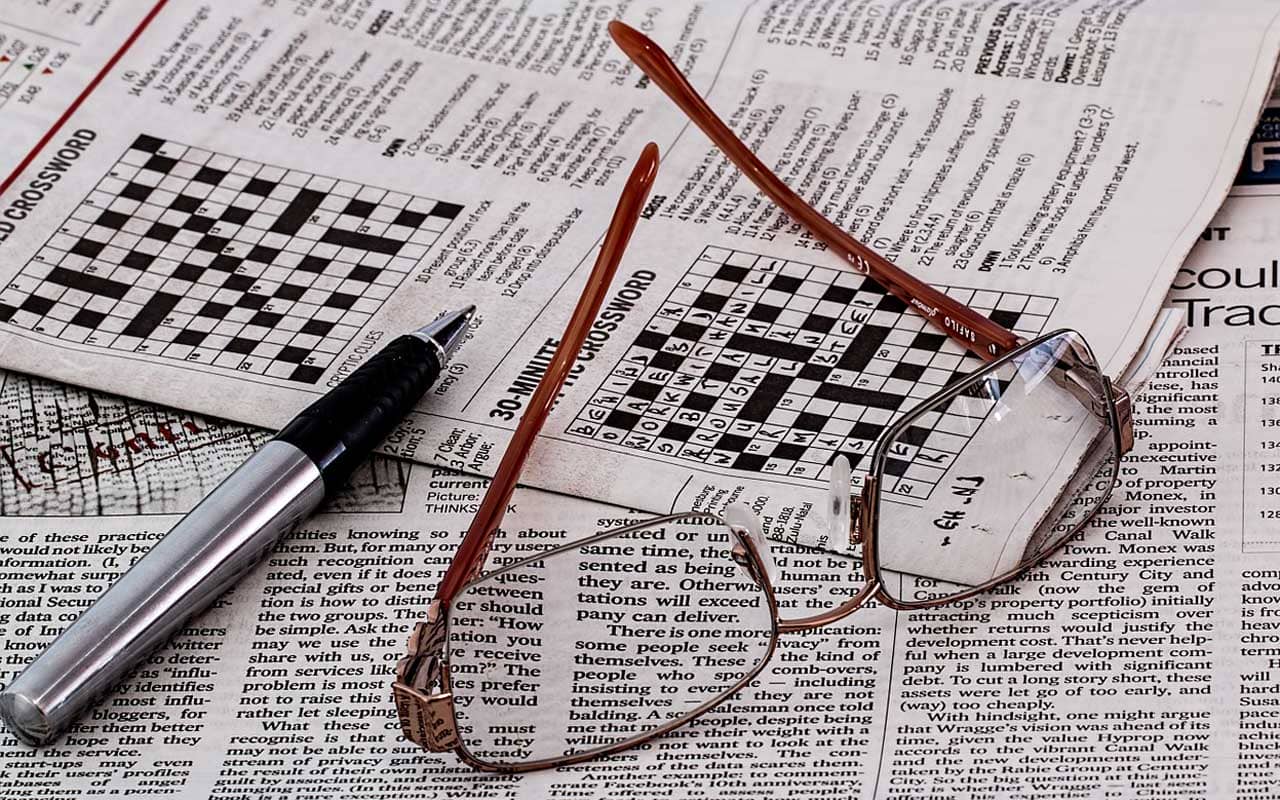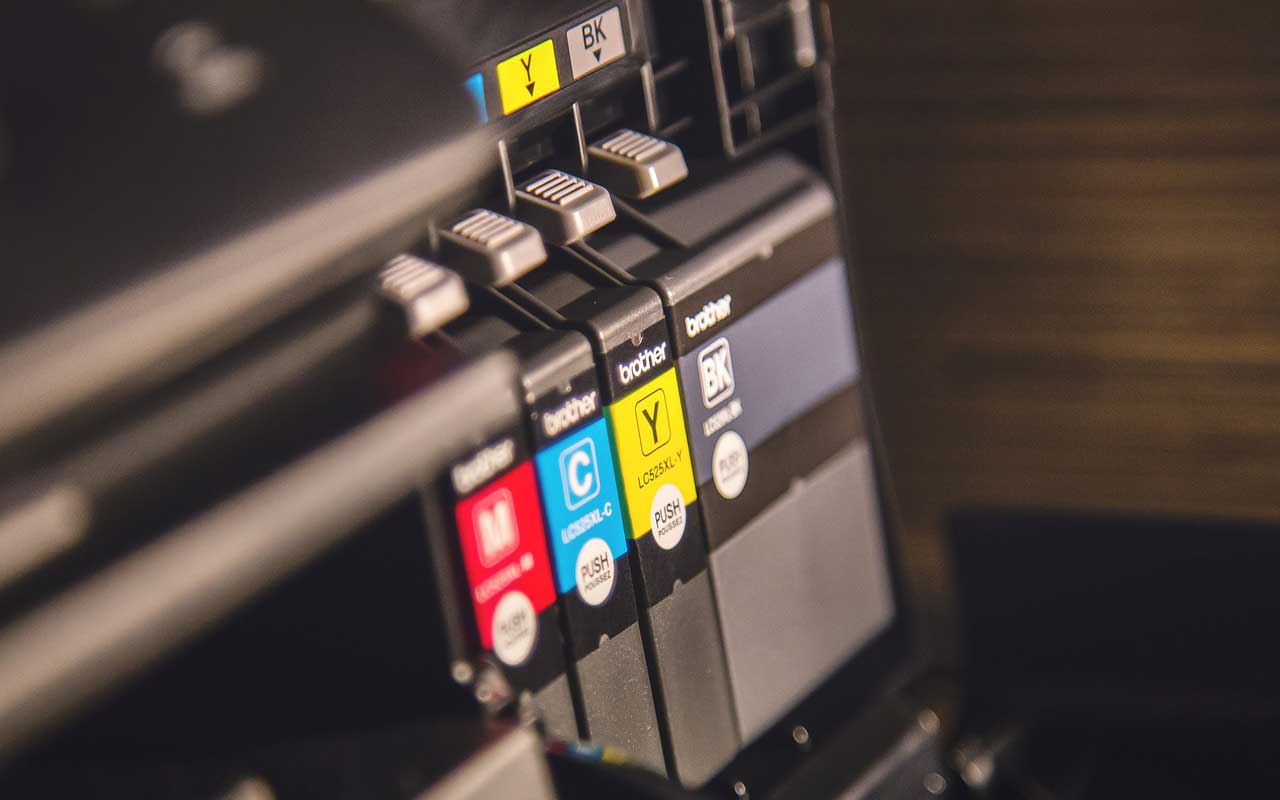 Ever find yourself in the middle of a sentence and unable to find the word you’re looking for?
Ever find yourself in the middle of a sentence and unable to find the word you’re looking for?
Or ever forget someone’s name when they seem to easily remember yours?
Embarrassing, isn’t it?
We all experience memory loss and memory challenges in our lives. But all is not lost! In the same way that you go to the gym for your body, you need a workout for your brain too.
Memory games are a great diversion and exercise for the brain. More than a diversion, when you pick the best possible games, you’ll get much needed boosts in your mind’s overall fitness.
To help you decide which games will help you and your memory best, this article provides a variety of online, offline, and printable games. Each one is science-backed and will legitimately stimulate your memory. As you go through the list, you’ll find memory games for adults, games for students, and even free memory games for seniors that I’ve tested myself.
There are also lots of picture matching memory games. With all these games you can have fun and improve your memory at the same time.
But here’s a stern warning:
Beware of games that promise the world. You must initially be your own scientist and experiment on yourself to improve your memory. This is a personal journey and ultimately you’ll get the best possible benefits by having a clear goal for the kind of memory improve you want to enjoy.
Okay, all that said, here’s a quick Table of Contents for what’s on this page if you want to skip ahead:
What Is A Memory Game?
Can Memory Games Really Help You?
A Brief Introduction To Different Types Of Memory
How To Approach Memory Games — Become Your Own Experiment
Online Memory Games And Applications
Offline Memory Games
Printable Memory Games
How Can I Train My Brain for Memory?
What Is A Memory Game?
A memory game is a structured form of play and has to be fun (or at least interesting).
The definition of a game can be flexible. It can be as simple as turning an activity into a game by ‘gaming’ it.
For example, you may set yourself a challenge of memorizing playing cards. Or you can use cards in the way I demonstrate in this video tutorial on my YouTube channel:
If you take the route of memorizing playing cards, you can increase the challenge by varying the amount of time you give yourself to memorize them. You can also gradually increase the number of cards and memorize more than one deck. Then, measure how many cards you were able to memorize and keep a record. You can play this game against yourself or with one or more friends. The definition of success is flexible and you get to set the terms.
Remember, you can benefit from any use of the brain so don’t get too caught up — just go ahead and play! And if you’d like to see me memorizing cards and turning it into a game, I’ve recorded myself going through a memorized deck. Watching it now, I can see the pleasure on my face when I achieved 100% success.
Can Memory Games Really Help You?
Games and improved memory can turn you into a larger version of yourself. And yes, many brain games do offer benefits, provided you choose ones aligned with the improvements you’d like to experience.

For example:
Alex Mullen, a student, won the World Memory Championships three years in a row (from 2015 to 2017).
He uses various memory techniques to memorize lists of numbers and can memorize a pack of cards in 20 seconds.
Alex also holds several world records and his feats have been covered in various media around the world. But he didn’t stop there. He applied the memory skills he learned to earning medical degrees and now enjoys a career in a specialization of his choice.
Likewise, Nelson Dellis won the American Memory Championship four times and is now a published author, highly sought after speaker, and mountaineer!
Not all of us can envisage the massive life changes that improvement of memory at this level can bring, but we can all acknowledge that some improvement would make life better.
But before we dive into the many memory games available, let’s quickly look at the different kinds of memory you’ll be putting through the much-needed paces we all need.
A Brief Introduction To The Different Types Of Memory You Can Exercise With Games
There are many types of memory and the science on this is deep. Here is a quick, easy introduction:
Sensory: things you remember with your senses. There are many subcategories, but a key element to remember is the more senses you engage when remembering something the more likely you are to remember it.
Short-term: otherwise known as working memory. This is when you need to retain a certain piece of information for a short time. For example, remembering where you parked your car or where you left your keys. All of us use this memory and it can be improved.
Long-term: there are many subcategories here. One type is semantic memory — the ability to recall and use words. This can apply to your first language or another language you are learning. There is also procedural memory — remembering how to do a task, and episodic memory — remembering a sequence of events or a story.
The most important memory science for those who want to up their game when using a Memory Palace Network is iconic memory.
How To Approach Memory Games — Become Your Own Experiment
So how do you approach memory games with the intent to improve some aspect of your memory? Set a goal — ideally related to something you do in your life and based on who you are.
Here is a suggested sequence:
- Find a memory challenge.
- Turn it into a game or find a game (the more senses the games use the better).
- Do it the first time and track your results.
- Repeat the game, modifying if necessary — and continue to track your results.
For example, you might like to remember what accidentals are in each of the 12 key signatures for music.
One way to do this would be to make some cards. One card has the key signature and the other card could have the number of sharps or flats in that signature.
The game would be to match them. At first, you can track how many you get right. Then as you get better you can time yourself and add extra challenges like naming the relative minor key.
This would be ideal for a music student because it’s something that relates to their life and could be tracked.
Setting an initial goal is easy — to be able to go through the 12 keys and name the corresponding accidentals. It’s also a great idea to keep a journal of your memory adventures.
In my own memory adventure, I’ve tracked everything from Memneon to Idriz Zogaj’s Memtopia. Being a historian of memory games is great brain exercise too.
Now that you know how you’ll approach these memory games, let’s take a look at our first category: online memory games.
Online Memory Games And Applications
A word of advice. There are millions of games and apps promising world champion memory skills. Many of them are commercial so they’ll give you a free taster and then ask you to pay to access the site. However, some are free.
The best approach is to try a couple, and if they work, stick with them.
Lumosity: Memory Serves
Sign in required / Memory Serves
Type Of Memory Used: Short-term and Working memory
Description: Memory Serves simulates a person delivering bags to hotel guests. You have to remember which bags should be delivered to which room.
Daily Crossword
Free and no sign up required / Daily Crossword Puzzle to Solve from AARP Games
Type Of Memory Used: Long-term semantic memory
Description: Provides a free online daily crossword and instant help or solutions. Just note that there are some issues with using crossword puzzles for memory exercise. I’ve outlined these issues in-depth here.
Memozor
Free and no sign up required / Memozor, free online memory games
Type Of Memory Used: Games mostly offer training for working memory.
Description: Offers three types of memory games — matching, The Simon games (remembering sequences), and other memory games such as numbers games. There are also memory games for kids.
Sudoku
Free and no sign up required / WebSudoku.com
Type Of Memory Used: Working memory
Description: Allows you to play sudoku and choose your level.
Mind Games
Free and no sign up required / Memory Games
Type Of Memory Used: Working memory
Description: A wide range of online games are available including memorizing cards and matching.
Happy Neuron
Needs sign up, free for 7 days / HAPPYneuron: Brain Fitness | Brain Games | Improve Your Mind
Type Of Memory Used: Working memory
Description: Presented as a workout with an online coach, you work through several challenges.
Cognifit (App)
Free and paid versions / CogniFit Brain Fitness
Type Of Memory Used: Working memory
Description: Brain training app that includes memory games.
NeuroNation (App)
Free and paid versions / NeuroNation – Brain Training & Brain Games
Type Of Memory Used: Working memory
Description: Brain training app that includes memory games.
Picture Matching
Free and no sign up required / Memory games for adults
Type Of Memory Used: Working memory
Description: Card matching game with 16, 20, or 30 card options.
Memory Ladder
Memory Ladder – Memory Trainer
Type Of Memory Used: Working memory
Description: Provides a number of training exercises that correspond to the World Memory Championships, such as remembering numbers or the sequence of a pack of cards.
Rebus Puzzles
121 Best REBUS PUZZLES | Rebus puzzles, Brainteasers, Brain teaser puzzles
Type Of Memory Used: Long-term semantic memory
Description: Uses a number of mental agility skills and word recall to uncover a phrase.
Now that we’ve explored the world of online memory games, let’s take a look at some more traditional games.
Offline Memory Games
Many people are familiar with these organic offline games either from school or from parties. They are very sociable, fun, and help your memory — whoever you are.
Movie Alphabet Game
Type Of Memory Used: Long-term recall
Instructions: Someone names a movie. The other players then respond in turn by naming a movie that has its first letter as the next in the alphabet. This can be extended by incorporating additional elements such as imitating the main actor, naming 3 actors in the movie, singing the theme song, or remembering where you were when you first saw it.
Story Stacking Game
Type Of Memory Used: Working and Episodic memory
Instructions: Player one says “I went to a restaurant last night.” Player two says “I went to a restaurant last night and drank red wine.” Player three says “I went to a restaurant last night, drank red wine, and my girlfriend threw her wine in my face.” The game continues until the final person cannot remember the entire sequence.
I Went To The Grocery Store Game
Type Of Memory Used: Working and Episodic memory
Instructions: Player 1 starts with the phrase “I went to the grocery store and bought an apple.” Then player 2 says “I went to the grocery store and bought an apple, and an orange.” The game continues until someone cannot remember all the items on the list. This game can be varied endlessly by changing the grocery store to other types of stores or by having activities instead of items.
Historical Dates And Music
Type Of Memory Used: Long-term recall
Instructions: Someone names a year and then the other players name songs or albums that came out in that year. This game system can be used in many different ways to recall items in long-term memory. You should have Google or another resource available to quickly check the answers.
Concentration/Pelmanism
Type Of Memory Used: Working memory
Instructions: You will need a set of pairs of cards or cards that match in some way (such as a picture and the written word for the picture). Place all cards face down and turn over two cards. If they match then you keep the cards and play again. If you fail, the turn goes to the other player and they attempt the same task. The player with the most cards at the end wins.
The Tray Game
Type Of Memory Used: Working memory
Instructions: Place 10 to 20 objects on a tray and allow the players to look at the tray for 30 seconds. Set a time limit, cover the tray, and let the players write down the items from memory. The player who remembers the most items wins. You can adjust the number of items and the time for viewing to change the level of difficulty.
Crosswords
Type Of Memory Used: Long-term semantic memory
Instructions: For those who appreciate old school ways, offline crosswords in newspapers or books are just as effective as online ones.
The Suitcase Game
Type Of Memory Used: Working and Episodic memory
Instructions: Similar to the Grocery Store Game. Player 1 says “I packed my suitcase with an apple,” then player 2 has to repeat the phrase and then add an item beginning with the next letter in the alphabet — a banana, for example. The game ends either when it breaks down or someone successfully recites all 26 items. Alternatively, you could keep going and start from “A” again.
Chess and Board Games
Type Of Memory Used: Long-term and Procedural memory
Instructions: Chess, backgammon, and other board games can have a positive impact on memory. There are hundreds to choose from. Remembering how to play and how to win uses memory and is also very social. With chess, there are additional memory benefits to learning openings and endgame sequences. These include developing your crystal and fluid intelligence.
Games that Use Your Childhood
Believe it or not, you can get great memory exercise simply by revisiting your youth.
Check out these 3 games you can play with your childhood that will give various aspects of your memory a solid workout.
Next, let’s look at how to keep your brain engaged when you’re traveling or away from your computer.
Printable Memory Games
These memory games are ideal for when you plan to be on the move or when you need to create your own card sets for games. There are also printable memory drawable games which are great fun.
Memozor
Free printable memory games
Type Of Memory Used: Various
Description: There are three types of games — memory games for kids, memory games for adults, and memory games for seniors. Games can be printed and then turned into card games.
Education.com
Memory Games Worksheets & Free Printables
Type Of Memory Used: Various
Description: A wide selection of matching games and spot the difference games are available on this site.
Draw The Image Game
Use any search engine to find these types of games.
Type Of Memory Used: Working and Visual recall
Instructions: Print out the image of something interesting or intricate and let the players look at the image for 2 to 3 minutes. Then have them draw the image from their memories. The best likeness is the winner! Search for interesting images online and print them out or use a screen.
Now you understand the different types of memory, and the games you can use to improve your memory, it’s time to take action.
How Can I Train My Brain for Memory?
Whichever games or activities you choose, it is vital to have goals — and to relate your training and game playing to how you use your memory in real life.
Like I said in the beginning, the more senses you can use in playing any particular game, the more likely you are to remember. You have sight, sound, smell, and touch available to you!
The good news is, you can start playing memory games right now!
And if you’re looking for even more ways to improve your memory, sign up for my free training.
In it, you’ll learn how using a Memory Palace can help you hang on to anything new you learn (including any tricks you figure out to make you even better at the games in this article!)
Related Posts
- 15 Secrets To Expanding Your Mind And Accessing More of Your Brain
You want to expand your mind but don't know how. These 15 secrets show you…
- How to Increase IQ: 7 Actionable Activities
It's possible to increase your IQ. The best part is that it's easy to do…
- Is Intelligence Fixed? The Surprising Answer
There's an answer to the question is intelligence fixed. The role of malleable intelligence and…
- Is Intelligence Fixed? The Surprising Answer
There's an answer to the question is intelligence fixed. The role of malleable intelligence and…










2 Responses
Great, loved it!
Thanks for letting us know!